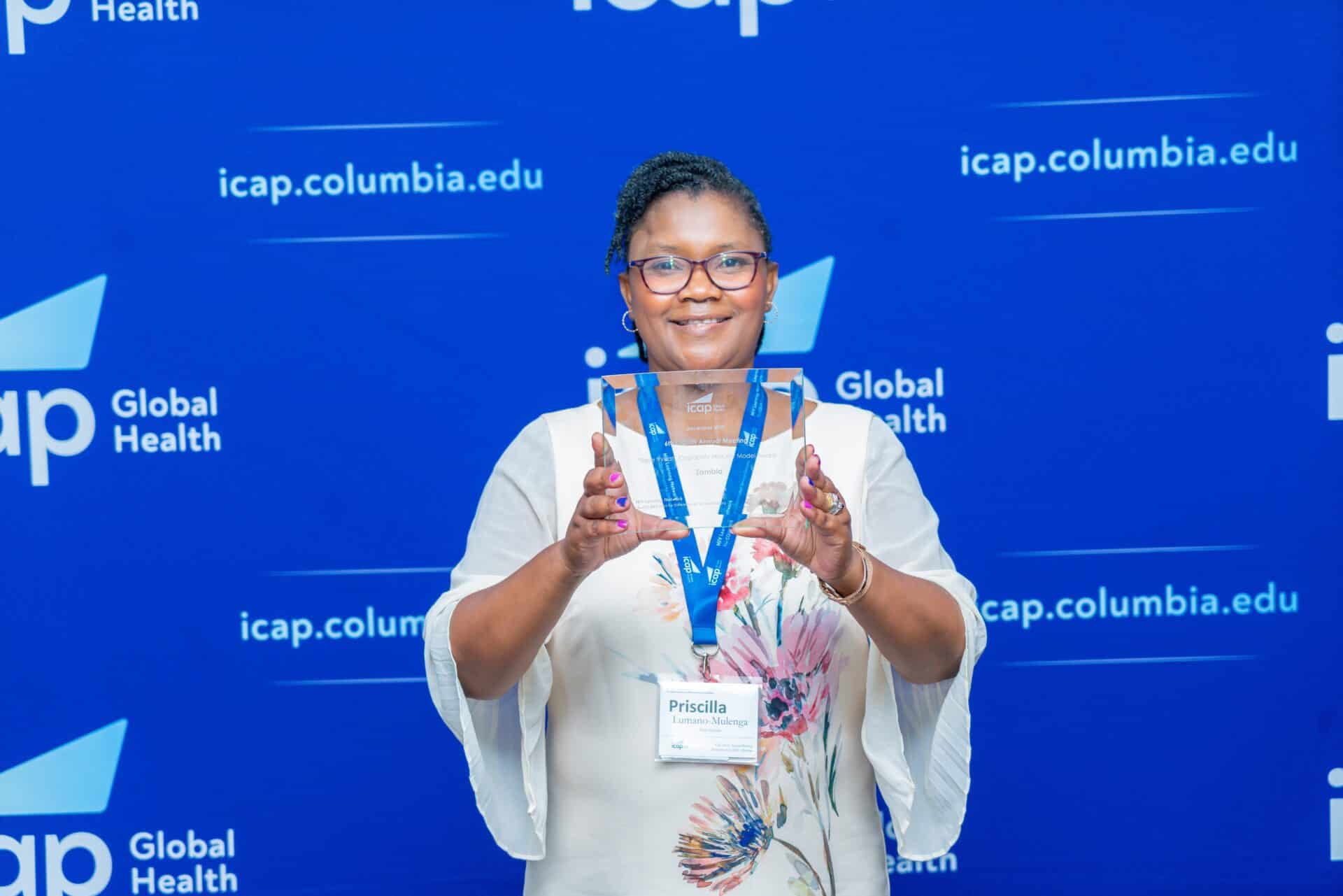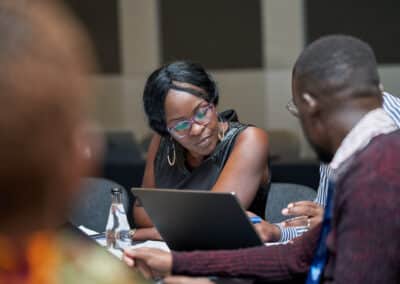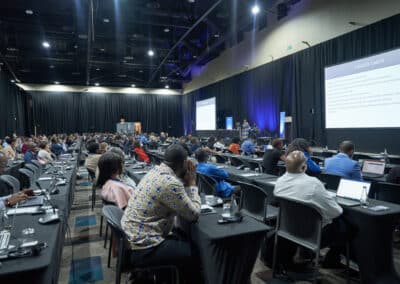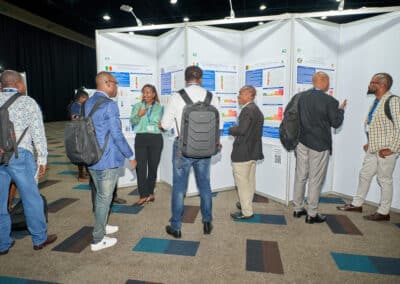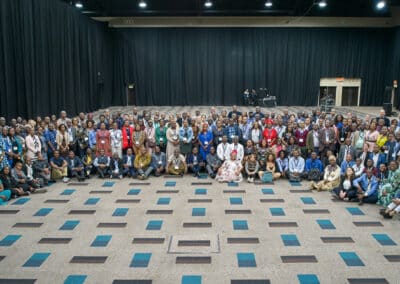Priscilla Lumano Mulenga, BScHB, MBChB, is the Prevention of Mother-to-Child Transmission (PMTCT) and Differentiated Service Delivery (DSD) Programs national coordinator at the Zambia Ministry of Health. As one of the first countries to join CQUIN in 2017, Dr. Mulenga has represented her country in various CQUIN network activities for the past six years. In this Q&A, she shares her views on Zambia’s progress through participation in CQUIN.
How have you witnessed the growth of the network over the years?
CQUIN has grown not just by the number of countries in the network but also by the number of HIV services offered in those countries. The topics covered at meetings have equally expanded and evolved. For example, when Zambia first joined CQUIN, our first framework as a country was focused on achieving the second 95 of the UNAIDS 95-95-95 goals — improving services for recipients of care who were stable on antiretroviral therapy. Now, we have expanded our efforts. We have also grown as a team. We have more members on the DSD task force and comprehensive representation with the Ministry of Health (MOH) at the lead. We are supported by funding agencies like PEPFAR, specifically through USAID and CDC. We have implementing partners supported through USAID or CDC and civil society representation on the DSD task force. We have committed to monthly virtual meetings that allow people to conveniently join meetings, unlike when they were all in person, so we have made progress as a country through the DSD task force.
Speaking of progress, Zambia made significant progress in improving its HIV treatment capability maturity model domains between 2022 and 2023. What sort of steps did you take to achieve this?
A number of steps. Firstly, the guidance from the CQUIN team during the country self-assessment process ensured that we understood what we were being asked and tackled what we needed as a country to progress our HIV program. Within a year, we have reached the highest maturity in four domains. This success came from a better understanding of the self-assessment questionnaire and process. When it comes to the example of community engagement, which has been emphasized at the annual meeting, it is not just about inviting recipient of care communities to events. It is ensuring that they are on the table and engaged and their voices are heard when MOH is implementing any policies. For Zambia, we have gone the extra mile to engage recipients of care in the implementation of community-based DSD models.
How long did it take to achieve the progress you’ve made so far?
It is an ongoing process. We haven’t achieved maturity in all domains of our HIV program. We still have to assess the impact of our DSD program and improve quality. We know what we need to do. Impact centers on evaluation, so we need to make sure that we mobilize resources to have a country-representative evaluation of our DSD programs. Our MOH mission statement is to “provide equitable access to cost-effective, quality health care services as close to the family as possible.” So, for us, improving the quality of our services is extremely important. We need national quality standards to help us improve this domain. We know CQUIN has some quality standards, and we plan to collect a number of other standards that we can adopt and adapt to create our own Zambia National Quality Standards for DSD. With that, we are going to make a difference in that domain.
Finally, what sessions or countries impressed you the most at the annual meeting?
Rwanda impressed me. Rwanda seems to be really taking the lead with family planning and HIV integration, which is one of our country’s priority areas. The CQUIN presentation that broke down the requirements for progress under quality was also good. The presentation from PEPFAR was also informative. I can only single out some things, but there were many engaging presentations. Countries came prepared!
Integrating non-HIV services into family planning services was one of the focal areas of discussion and engagement at the CQUIN 7th Annual Meeting. From April 15-18, 2024, in Nairobi, Kenya, CQUIN will host its first all-network meeting on Non-HIV Service Integration into DSD Programs, where Dr. Mulenga will once again represent Zambia.


